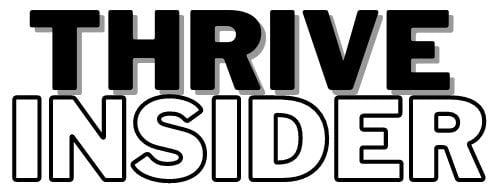Thyroid illness can be a tricky diagnosis to make as the symptoms can be diffuse and differ widely from patient to patient. Here are some conditions that have been mistaken for thyroid issues and vice versa.
Tonsillitis
A painfully sore throat, accompanied by fever and a rough voice seems like some kind of infection in the throat, but it can also be caused by a faulty thyroid. If your voice if hoarse and remains so for some weeks – in short, not following the progression of a viral or bacterial infection – then you may indeed have thyroid issues, and should contact your medical professional for a check-up.
Weight Gain
If you have been snacking more than usual, not exercising as much as you should and even just simply moving into middle age, these can all cause a little weight to pile on around your middle – and onto other body parts too! Only if you have definitely not changed any of these lifestyle activities should you think that it might be a thyroid issue. But even then it is hard to tell, as low thyroid hormone levels can make you more tired, leading you to avoid your usual exercise – but generally your appetite will be diminished too, so weight gain would be a surprising result!
Anxiety/ Panic Disorder
High thyroid hormone levels do cause agitations and anxiety in patients, but this should not be your first thought if it is possible that you have actual anxiety or a panic disorder. Usually it is a sign of thyroid overproduction in people who are customarily calm who quite suddenly begin to have panic attacks and suffer from agitation.
Arthritis
Joints aches and pains are part of getting older, and old injury sites, in particular, tend to grumble in cold weather, but sometimes this ageing process is ascribed to hypothyroidism in error. Make sure that you eat well and sleep in a comfortable and firm bed – and accept that with the advent of middle age, comes the odd muscle twinge or joint pain!
Vitamin deficiency
Vitamin deficiencies all look subtly different, just as thyroid disease does, and it is quite easy to mistake one for the other. If you begin to suffer weakness, fatigue, and skin dryness, make sure your diet is giving you all the vitamins and minerals you need before you decide that it is the fault of your thyroid.
Anemia
Lack of iron in your diet can leave you feeling pale and weak, and this is often one of the first signs of thyroid deficiency too. Check your diet for iron and, especially if you are a woman with heavy periods, consider taking an iron supplement to see if that will make any difference to your condition. If it does not, then you should seek medical tests to ascertain the cause of the problem
Neurological Conditions
Along with the aches and pains mentioned above, older age also brings with it a host of neurological conditions such as Parkinson’s Disease and other forms of dementia – and the early signs of these can sometimes be ascribed to a faulty thyroid rather than their true cause. These symptoms should always be taken seriously and should be checked with a medical professional so treatment can begin at once. Neurological conditions can often be managed, as can most thyroid disease – if you are a private patient, click here to see about medications from Armour Thyroid shipped to the UK – and you will soon be able to enjoy great quality of life, despite your diagnosis.
Poor Lifestyle
Eating junk food, sleeping poorly, not drinking enough water, and not exercising to an appropriate level can all leave you feeling out of sorts. If you feel ill, try fixing the four above lifestyle components for at least two weeks, and then assess how you feel. If you still feel unwell and sickly, you will be able to assure your doctor that your issues are not related to an insufficient diet or poor lifestyle.







More Stories
Navigating The Dynamics Of A Son-Father Relationship
3 Reasons Why Oral Health is Important
How to Improve Indoor Air Quality in Your Home